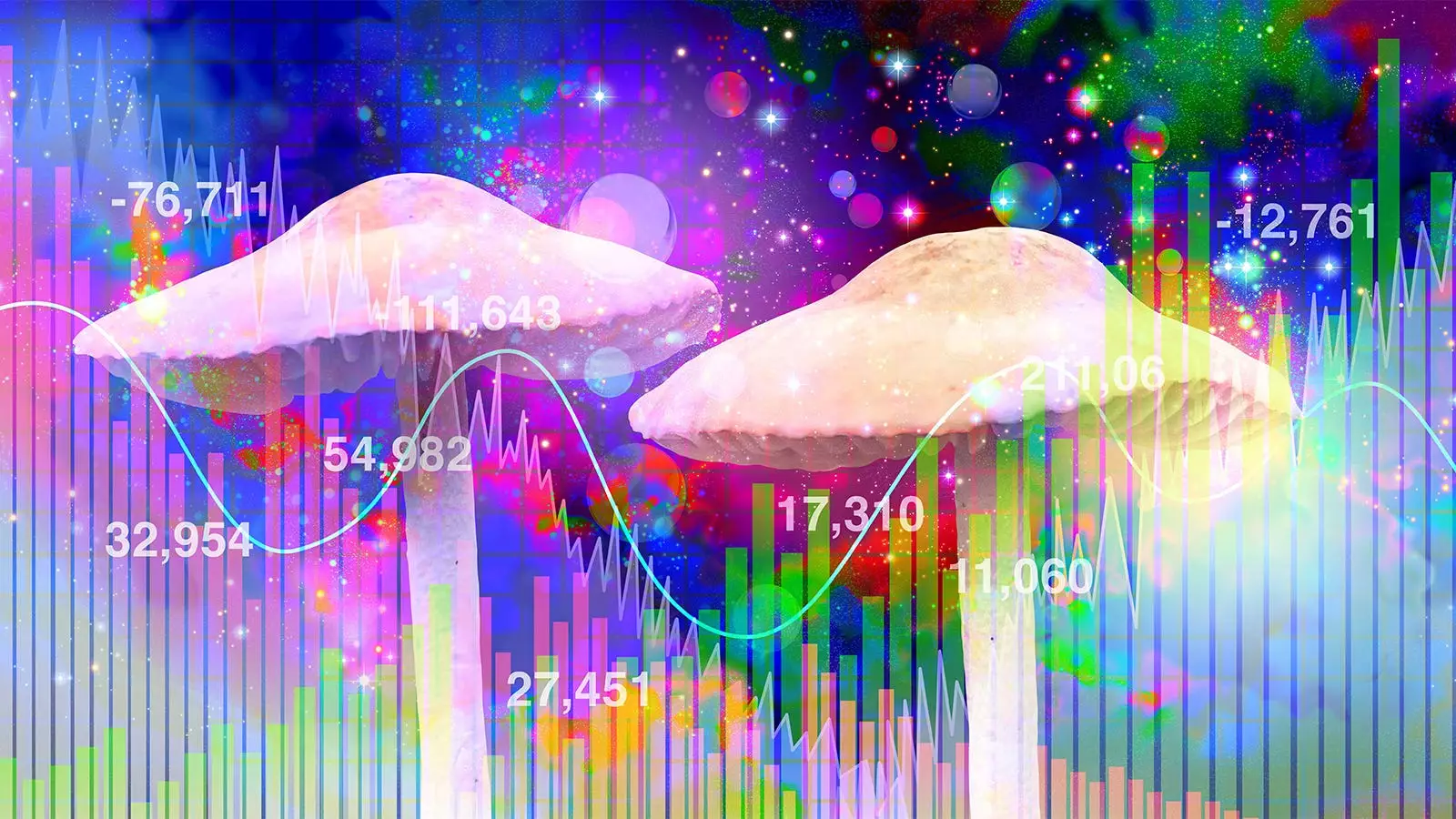In recent years, there has been a growing interest in the therapeutic potential of psychedelics for the treatment of mood disorders. Several studies and trials have shown promising results, indicating that these substances could revolutionize mental health treatment. Although still in the investigational stage, psychedelic compounds such as N,N-dimethyltryptamine (DMT), psilocybin (found in “magic mushrooms”), MDMA, and ketamine have garnered attention for their ability to alleviate symptoms of depression, post-traumatic stress disorder (PTSD), and even anorexia.
A phase IIa trial investigating the effects of DMT in patients with depression showed significant reduction of depressive symptoms compared to a placebo. This investigational treatment, known as SPL026, demonstrated its antidepressant effects within a week after administration. The results were remarkable, as it alleviated depressive symptoms by 7.4 points more than the placebo, as measured by the Montgomery-Asberg Depression Rating Scale (MADRS). These findings open up new possibilities for the use of DMT in treating mood disorders.
Psilocybin, the active compound in “magic mushrooms,” has also shown promise in the treatment of depression and other mood disorders. A phase II trial revealed that a single dose of synthetic psilocybin resulted in a significant improvement in depressive symptoms and functional disability. Patients experienced sustained improvement even 43 days after treatment. Psychedelic-assisted therapy, which combines the administration of psilocybin with psychological support, has proven to be effective in a wide range of patients, including those with major depressive disorder and anorexia.
Another psychedelic compound gaining attention is MDMA, commonly known as ecstasy. In a late-stage trial, MDMA was found to significantly improve symptoms of post-traumatic stress disorder (PTSD) when used in combination with psychotherapy. The therapeutic effects of MDMA were even more pronounced than those of placebo with psychotherapy. As a result of these positive findings, there are high hopes for MDMA’s potential in treating not only PTSD and depression but also other mental health disorders.
Ketamine, although not a traditional psychedelic, has emerged as a powerful tool in treating treatment-resistant depression. In a major study, it was found to be as effective as electroconvulsive therapy, the current “gold standard” treatment for severe depression. Ketamine demonstrated a treatment response rate of 55.4%, compared to 41.2% with electroconvulsive therapy. This finding suggests that ketamine could be a viable alternative for patients who do not respond well to other forms of treatment.
The successes observed in phase II and III trials have led to significant advancements in the field of psychedelic research. MAPS Public Benefit Corporation has recently submitted a new drug application to the FDA for MDMA, requesting priority review. If approved, this would pave the way for the rescheduling of MDMA and its use in prescription medical treatments. Additionally, Esketamine, a nasal spray form of ketamine, has been approved by the FDA for the treatment of treatment-resistant depression when used alongside an oral antidepressant.
The growing body of evidence supporting the use of psychedelics in treating mood disorders points to a promising future for mental health treatment. The potential of these compounds to alleviate symptoms and provide lasting relief is a significant step forward in addressing the global burden of depression, PTSD, and other mood disorders. Further research and clinical trials will be crucial in fully understanding the mechanisms of action and optimizing the therapeutic use of psychedelics. As the stigma surrounding these substances diminishes, it is becoming increasingly clear that psychedelics have the potential to revolutionize mental health care.

Leave a Reply